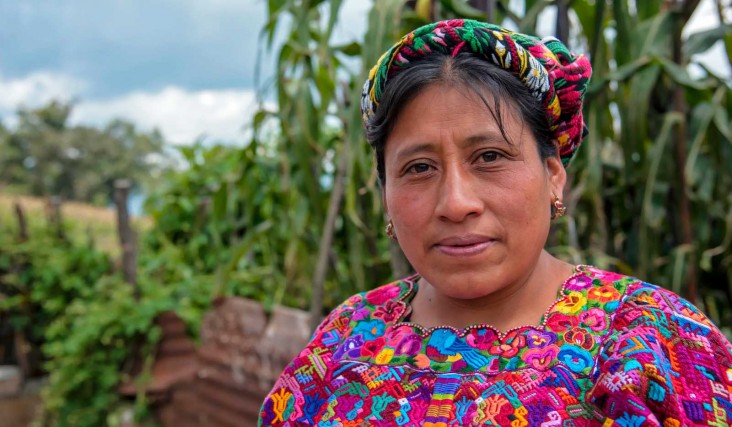Las Rosas: Saving for the Future
Women form a weaving cooperative to provide for their families and have dignified work. USAID helps them build the financial and organizational skills to make it successful. Read the story
You are viewing:
Information released online before January, 2021.
Note: Content in this archive site is NOT UPDATED, and external links may not function. External links to other Internet sites should not be construed as an endorsement of the views contained therein.
You are entering the 2017-2020 Archive for the
United States Agency for International Development web site.
If you are looking for current information, visit www.usaid.gov.

Women form a weaving cooperative to provide for their families and have dignified work. USAID helps them build the financial and organizational skills to make it successful. Read the story
USAID empowers women by building platforms for civic participation and improving access to economic opportunities, quality education, health services, and justice.
Gender gaps remain in nearly all areas of Guatemalan life, impacting women’s participation in the formal economy, their exercise of political and social leadership, and their access to goods, resources, and services. USAID fosters greater social inclusion in political processes in Guatemala by strengthening the civic and political participation of women so that they have a more prominent voice in decision-making, improved access to public services, and equal access to economic opportunities.
To help women secure a more meaningful role in policy-making, USAID supports municipal directorates for women (DMM) to advance women’s participation in community and municipal committees, strengthening their leadership role in the formulation of political, economic, cultural and social proposals to be funded by local municipalities. DMMs also promote dialogue between women’s organizations and municipalities to work on municipal equity policies and help strengthen the role of women’s organizations.
In order to promote local economic development amongst women, USAID provides vocational education, expanded market access for women-owned enterprises, business development services, and access to agricultural technology.
USAID also supports the justice and security sector to increase and improve services to victims of gender-based violence and supports communities to develop and implement violence prevention plans that include gender-based violence prevention. Additionally, USAID helps build the technical and advocacy capacity of local LGBTI organizations, strengthening their leadership and negotiation skills, engagement strategies, and messaging on key gender issues. USAID supports proposals to more effectively criminalize violence against the LGBTI community and efforts to accurately evaluate the quality of services provided to the LGBTI community, especially with regard to justice and security.
Guatemala society can be characterized as having a patriarchal and “machista” structure that often excludes women and other marginalized groups. This manifests as gender gaps across a variety of sectors and public services. Women tend to run fewer businesses, own less property, have greater difficulty entering the formal labor market, and have less access to credit and financing than men. Statistically, only 37 percent of women participate in s the formal labor market (as opposed to 85 percent of men), 27 percent own their own business, and 28 percent have access to financial markets (as opposed to 66 percent of men).
Women also struggle to access social services such as education and health and are more often the victims of violent crime. According to the Public Ministry, violence against women is the most commonly reported crime in Guatemala with 51,906 complaints filed in 2018. A report from the KIND Foundation shows that six out of ten migrating women are raped during their journey, and girls traveling alone and LGBTI are at high risk of trafficking in persons.

Comment
Make a general inquiry or suggest an improvement.